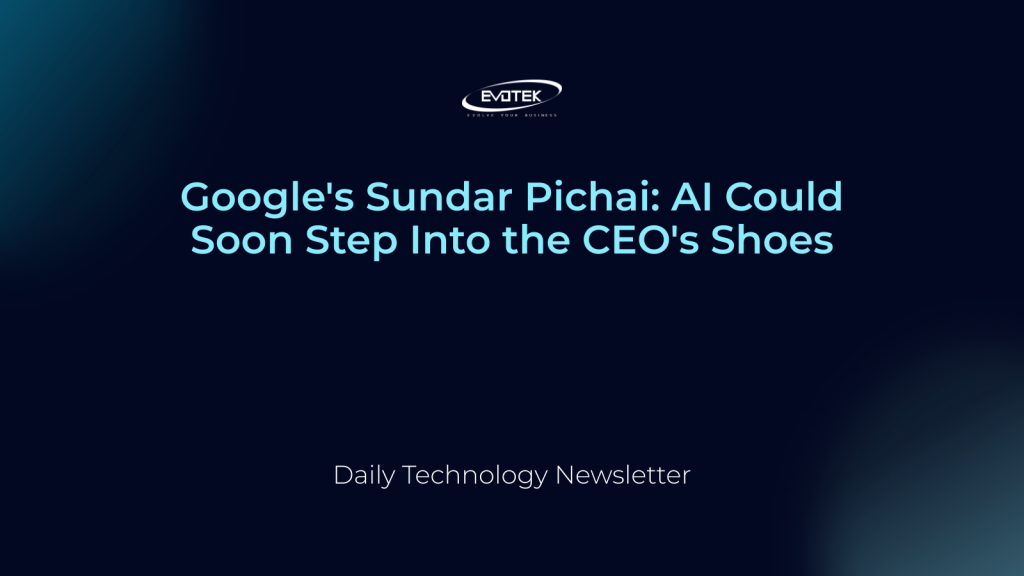Google and Alphabet CEO Sundar Pichai recently shared a thought-provoking perspective on the future of leadership, suggesting that the role of a chief executive officer might be among the “easier things” artificial intelligence could eventually handle. Despite leading a tech giant valued in the trillions, Pichai appears unperturbed by the prospect of AI potentially taking over his own position.
AI’s Rapid Ascent: A New Era for Leadership?
In a candid interview with the BBC, Pichai underscored the astonishing pace of AI’s development. He elaborated that within the next year, AI is expected to evolve significantly, capable of tackling “complex” tasks and acting as a sophisticated agent on behalf of users. “That’s where it gets really interesting,” he noted, hinting at transformative applications.
While not detailing specific CEO functions AI could excel at, Pichai indicated that this technological surge will inevitably lead to job displacement in some sectors, simultaneously “evolving and transitioning” others. This shift, he stressed, will necessitate considerable adaptation from the workforce.
Tech Leaders Foresee Automated C-Suites
Pichai is not alone in his forward-thinking assessment of AI’s impact on executive roles. Other prominent figures in the tech world have voiced similar sentiments:
- OpenAI CEO Sam Altman previously stated that AI would someday outperform him in his role, expressing “nothing but enthusiasm” for that future.
- Klarna CEO Sebastian Siemiatkowski also took to X (formerly Twitter) to declare, “AI is capable of doing all our jobs, my own included.”
These individual predictions are reinforced by broader industry sentiment. A survey conducted by online learning platform edX revealed that close to half (49%) of 500 chief executives polled believe that a majority, if not all, of their job functions should eventually be automated by AI.
A Counterpoint: Human Ingenuity Remains Key
However, not all tech titans share this view. Nvidia CEO Jensen Huang, when questioned last year about AI’s potential to usurp his position, offered a firm “absolutely not.” Huang articulated that while AI can perform specific job components up to a thousand times better, it is still far from replacing human workers on a massive scale. “As we speak, AI has no possibility of doing what we do,” he asserted, highlighting the irreplaceable aspects of human creativity, strategy, and judgment.
Beyond the Boardroom: AI’s Everyday Revolution
Beyond its potential implications for the C-suite, Pichai believes AI will usher in revolutionary applications for the average person. He envisioned AI as a powerful tool for personal decision-making, offering guidance on matters ranging from financial investments to medical treatments.
“Down the line that means there are moments it can help you make a decision, like it could be, should I invest in this stock, ask the question,” Pichai explained. “Or my doctor is recommending a treatment, and how should I think about the pros and cons of that treatment.”
Despite these grand visions, Pichai acknowledged that the full spectrum of AI’s capabilities is still some time away. “There is still work to be done to unlock those capabilities, but that’s the journey which has been so exciting to see,” he concluded, emphasizing the ongoing development required to fully realize AI’s transformative potential.

 日本語
日本語 한국어
한국어 Tiếng Việt
Tiếng Việt 简体中文
简体中文